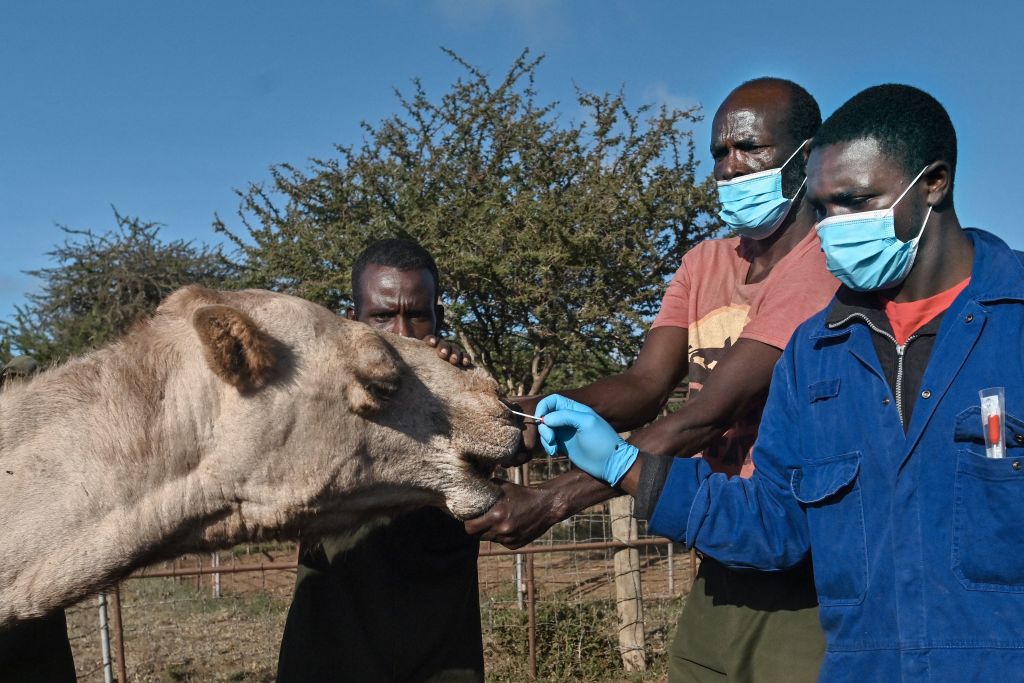ADF STAFF
Animals and people who have suffered chronic COVID-19 infections may be causing new coronavirus variants to surface.
But that’s no reason to panic, experts say.
Chronic COVID-19 is rare and has been reported only in people with severely depressed immune systems. It differs from “long COVID,” which is when symptoms persist after patients recover from their initial infection, according to Grace C. Roberts, a research fellow of virology at the University of Leeds in England.
“While new COVID variants do appear more likely to form in patients with chronic infections, the good news is they don’t seem to pose a significant threat,” Roberts wrote in The Conversation.
Citing a study published on nature.com, Roberts wrote that the majority of new variants in chronically infected patients are unlikely to spread to other people.
As of August 10, health experts were analyzing COVID-19 variant BA.2.75 — also called “centaurus” — which was rising rapidly in India. A number of studies suggested that BA.2.75 and the highly transmissible BA.5 variant had similar capacities to dodge immunity.
But experts such as Shahid Jameel, a virologist at the University of Oxford, say centaurus may not dramatically increase COVID-19 cases outside India, if population immunity there is high and the variant does not acquire many extra mutations.
“We’re coming to a point where these variants are sort of competing with each other and they’re almost equivalent,” Jameel told nature.com. “I think people who have had BA.5 will not have breakthrough infections with BA.2.75, and vice versa.”
Zoonotic and Reverse Zoonotic Outbreaks
Zoononotic diseases, which can spread from animals to humans, are common, as up to 75% of emerging infectious diseases in people across the globe come from animals.
In December 2020, for example, the Statens Serum Institut in Denmark identified seven unique mutations in the spike protein of COVID-19 among variants passed from minks to farmers. No people died during the small outbreak and there was no evidence of further transmission from the farm workers into the broader community, Roberts reported.
In July, the World Health Organization reported a 63% rise in the number of zoonotic outbreaks in Africa over the last decade.
Days later, Tanzanian Minister for Health Ummy Mwalimu confirmed 20 cases of leptospirosis, three of which resulted in deaths, according to Kenyan newspaper The Standard. Leptospirosis is a bacterial disease that humans may contract by coming into contact with the urine of an infected animal.
In June, the African Union established its Interagency Group on One Health to develop ways to better monitor and evaluate zoonotic diseases. One Health promotes a collaborative, multi-disciplinary approach to improve health outcomes.
A late 2021 study by the U.S. National Library of Medicine showed that COVID-19’s omicron variant could have spread from humans to mice, where mutations in the virus accumulated for more than a year before being passed back to humans in 2021. That is known as a reverse zoonotic event.
Such transmissions are far less common than zoonotic events, although an earlier National Library of Medicine study concluded that more research on reverse zoonotic events was needed. While omicron is a more highly transmissible variant than previous COVID-19 strains, it causes milder symptoms and fewer hospitalizations and deaths.

